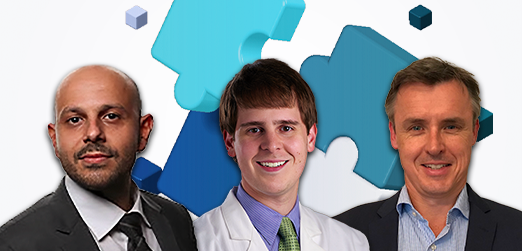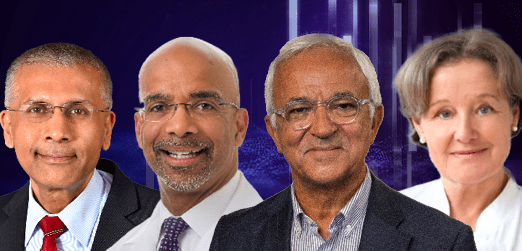- Home
- Heart Failure Online 2022 - Session 2.3 Practical Theory & Hot Topics: HF Aetiology
Heart Failure Online 2022 - Session 2.3 Practical Theory & Hot Topics: HF Aetiology
- Heart Failure
Available Credit:
- 1.00
Course Published On:
Course Expiry Date:

Overview
Heart Failure Online (HFO) is a new innovative virtual event, that brings together a leading international faculty to create a rich, interactive experience to best inform the global heart failure community of the latest developments and advances in clinical practice.
With patient management and outcomes at its core, Course Director Prof Andrew Coats (President of the Heart Failure Association and Professor of Cardiology, University of Warwick, UK) leads an interactive programme of discussion, opinion and case studies focusing on the patient journey.
Disclosure
In compliance with EBAC / EACCME guidelines, all speakers/chairpersons participating in this programme have disclosed or indicated potential conflicts of interest which might cause a bias in the presentations.
The Organising Committee/Course Director is responsible for ensuring that all potential conflicts of interest relevant to the event are declared to the audience prior to the CME activities.
Terms & Conditions
Radcliffe Education requires contributors to our CME programmes to disclose any relevant financial relationships that have occurred within the past 12 months that could create a conflict of interest. These will be identified in the faculty section if applicable.
The session 'Heart Failure Online 2022 - Session 2.3 Practical Theory & Hot Topics: HF Aetiology' is accredited by the European Board for Accreditation of Continuing Education for Health Professionals (EBAC) for 1 hour of external CME credits.
Each participant should claim only those hours of credit that have actually been spent in the educational activity. EBAC works according to the quality standards of the European Accreditation Council for Continuing Medical Education (EACCME), which is an institution of the European Union of Medical Specialists (UEMS).
Through an agreement between the European Board for Accreditation of Continuing Education for Health Professionals (EBAC) and the American Medical Association, physicians may convert EBAC External CME credits to AMA PRA Category 1 Credits™. Information on the process to convert EBAC credit to AMA credit can be found on the AMA website.
Instructions to Participants
There is no fee for taking part in this online learning activity.
Activities are designed to be completed within 60 minutes and must be completed by the registered user. Physicians should only claim credits for time spent on the activity. To successfully earn credit, participants must complete the activity in full in the indicated time frame.
To complete the course and claim certification participants must:
- Read the course outline information supplied and complete pre-test questions if supplied prior to starting the activity. Users must read and study the activity in its entirety before completing the post-test questions.
- Your results will be automatically saved and if a pass score is achieved (where applicable), you may be eligible to claim credit for the activity and receive a certificate of completion.
Target Audience
- Heart Failure Specialists
- General Cardiologists
- General Practitioners (GPs)
- Nurses, Pharmacists, and other Allied Healthcare Professionals
Learning Objectives
The overall programme, Heart Failure Online 2022, endeavours to best address the following learning objectives:
- Select foundational and advanced management strategies in complex patients
- Discuss the validity of using ejection fraction to determine optimal treatment strategies
- Assess the likely impact of health technology on future practice
- Identify the underlying causes of heart failure
- Select appropriate interventional and device-based treatments for treating underlying causes of heart failure
- Assess the impact of the multidisciplinary team on heart failure outcomes
- Discuss the importance of using quality of life and patient self-assessed measures relative to hard clinical end points
Module |
Title |
Duration |
Speakers |
|---|---|---|---|
| Presentation & Discussion | Knowing When to Treat the Underlying Cause of HF: Aetiology Essentials | 20 mins | Biykem Bozkurt (Texas, US ) |
| Presentation & Discussion | Advances in Non-cardiac Comorbidity Management with Focus on Hyperkalaemia | 20 mins | Ileana L Piña (Detroit, US ) |
| Presentation & Discussion | Functional MR in Heart Failure | 20 mins | Fabien Praz (Bern, CH) |
Knowing When to Treat the Underlying Cause of HF: Aetiology Essentials
Duration: 20 mins
Speakers: Biykem Bozkurt (Texas, US )
Advances in Non-cardiac Comorbidity Management with Focus on Hyperkalaemia
Duration: 20 mins
Speakers: Ileana L Piña (Detroit, US )
Chair
Panelist













